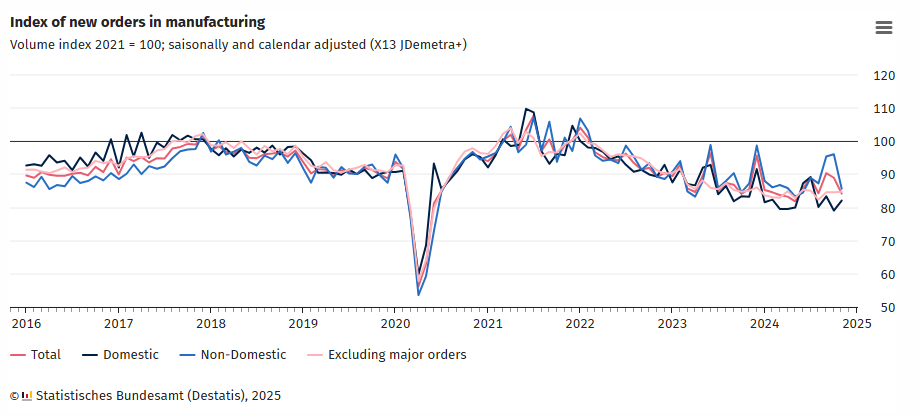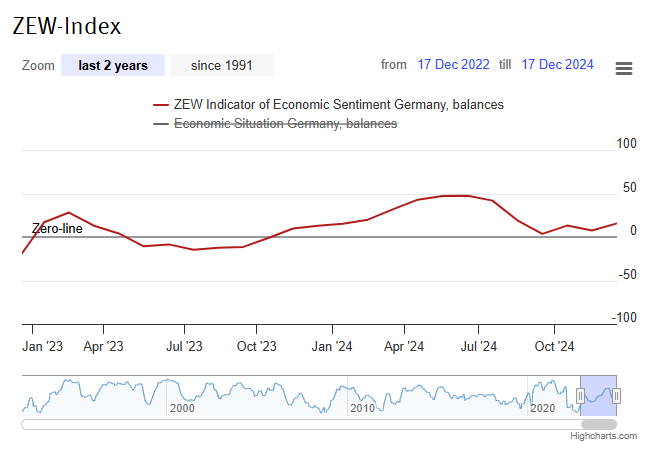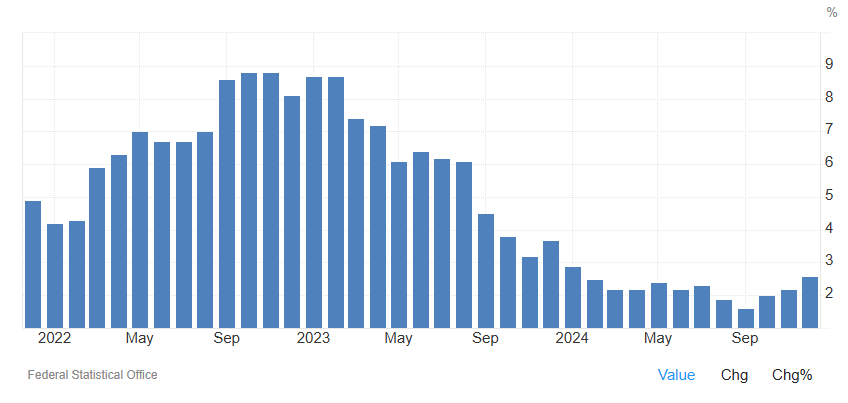Tech billionaire Elon Musk doubled down on his support for Germany's "far-right party" as a remedy for the country's faltering economy during a live event on his social media platform X.
With more than 200,000 listeners, Musk told Alice Weidel, a co-leader of the Alternative for Germany (AfD) party, on Thursday that he was "strongly recommending that people vote for AfD." He endorsed Weidel weeks before the German snap elections on February 23.
"People really need to get behind the AfD, otherwise things are going to get very, very much worse in Germany," Musk said. “I think Alice Weidel is a very reasonable person. Nothing outrageous is being proposed.”
Musk's vocal support for AfD has raised alarms that the incoming Trump administration may take a more assertive approach against mainstream European political parties. Musk has called British Prime Minister Keir Starmer, who sent Labour party members to support Kamala Harris during the November US election, an evil tyrant who should be in prison.
Critics, including several German officials, French President Emmanuel Macron and Norwegian Prime Minister Jonas Gahr Store, have accused Musk of meddling in European politics. They fear Musk's support for AfD may strengthen far-right parties in Europe.
Musk Supports AfD Approach to Regulations, Taxes
The world's richest man has defended his right to weigh in on German politics because of his “significant investments.” He has praised the AfD’s approach to regulation, taxes and market deregulation despite members being classed as right-wing extremists.
However, Germany’s economic policies and political instability have bolstered support for AfD more than Musk’s public backing. The German economy is anemic, weighed down by bureaucracy and higher energy prices.
New orders in manufacturing declined 5.4% in November from the previous month, data from the Federal Statistical Office (Destatis) showed on January 8. This key economic indicator is ranging at levels experienced during the COVID-19 pandemic.

Industrial production, in real terms, has also failed to recover since the pandemic, mostly declining since March 2021.
The OECD expects GDP growth of 0.7% in Germany in 2025 after a likely contraction of 0.2% last year. Potential trade tensions with the United States and persistent geopolitical tensions affecting energy markets have also weighed on the German economy.
German Outlook Remains Mixed as Musk Supports AfD
Germany's economic outlook also remains mixed after the collapse of Chancellor Olaf Scholz's government in December. The government collapsed after Scholz lost a confidence vote in Parliament, deepening concerns about managing the country's economic challenges.
German leadership must also manage a more assertive US foreign and trade policy under the incoming Trump policy. Musk described Scholz as a "fool" after his three-party coalition imploded in November, signaling a more hardline from Trump's new team.
"Economic expectations for Germany have been overshadowed by Trump's victory and the collapse of the German government coalition," ZEW President Professor Achim Wambach said on November 12.
The ZEW Indicator of Economic Sentiment for Germany rose month-on-month by 8.3 points to 15.7 points in the December 2024 survey. However, the assessments of the current economic situation fell 1.7 points.

AfD's Weidel Criticizes Merkel for German Malaise
Weidel, though, blamed Germany's current economic situation on the policies started by former Chancellor Angela Merkel, the country's first female leader in 2005. She served four terms before stepping down in 2018.
Merkel "ruined our country," Weidel said. "Germany is the only industrial country that unplugged the nuclear power plant. The aim of Angela Merkel was to enforce just solar and wind energy. You cannot run an industrial country with just wind and solar."
Germany closed its three remaining nuclear power plants in April 2023 despite facing energy supply shortages and higher inflation. Yet, the country lost access to inexpensive natural gas supplies from Russia after Moscow's invasion of Ukraine in February 2022.

"When I saw that Germany was turning off the power plants, after being cut off from gas supplies from Russia, I thought this was one of the craziest things I've ever seen," Musk said. "Just when Germany most needs electricity, Germany is shutting down one of the best sources of electricity, which is nuclear power."
Weidel also expressed AfD's commitment to greater energy supply diversification, criticizing consecutive governments for green policies that "don't work."
Musk Supports AfD as Antidote to German Bureaucracy
Musk pointed to the bureaucratic hurdles he confronted when opening the German Tesla plant, including the 25,000 pages needed to get the permit.
"And it had to be all printed on paper,” Musk said. “And then there has to be many, many copies made. So, it literally was a truck of paper.”
Weidel also criticized mass immigration into Germany, saying 7 million people immigrants have entered the country since 2015. She expressed her support for Trump and his incoming administration.
"It was really unbelievable how Donald Trump was treated by German media and German politicians during his election campaign," she said. "How he was disparaged and his entire family."
Disclaimer:
Any opinions expressed in this article are not to be considered investment advice and are solely those of the authors. European Capital Insights is not responsible for any financial decisions made based on the contents of this article. Readers may use this article for information and educational purposes only.
This article is from an unpaid external contributor. It does not represent Benzinga’s reporting and has not been edited for content or accuracy.
© 2025 Benzinga.com. Benzinga does not provide investment advice. All rights reserved.
Trade confidently with insights and alerts from analyst ratings, free reports and breaking news that affects the stocks you care about.